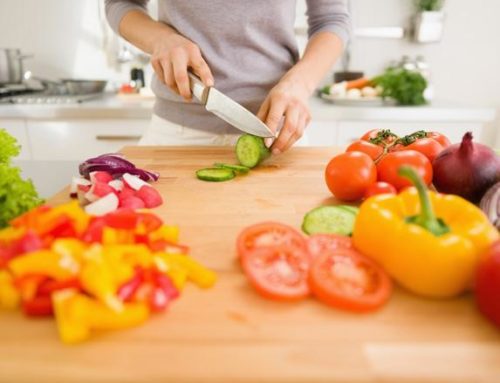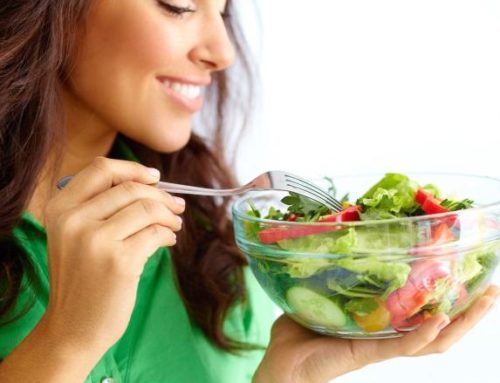If someone told me 10 years ago that I could go a month without meat, I would have suggested they were confusing me for someone else, not my steak-loving carnivorous self. However, not only did I survive a meatless-month, that month has somehow extended itself into nine years going on 10. The only explanation for my dietary 180 I could offer at the time was that “I just felt better,” a phrase I often hear from others who tried a vegetarian diet and stuck with it. However, vegetarianism isn’t a magic “feel better” switch you can just flip; it’s very much a learning process. Whether you’re going veg for health benefits, ethical reasons or just to feel better, here are the top benefits as well as tips to keep in mind as you embark on your vegetarian journey.
Why Go Vegetarian
While the benefits of going veg are numerous, here are the top three reasons I would recommend going veg.
1. Lower risk of disease.According to the ADA, people who follow a vegetarian diet are at lower risk for cancer, heart disease, obesity, diabetes and hypertension.
2. More nutrients.A balanced vegetarian diet is loaded with fruits, vegetables, legumes and complex grains. In order to fill your plate in meat’s absence, you’ll find yourself relying on and eating more nutrient-dense foods.
3. Discovering new foods.Eating veg isn’t as simple as choosing between chicken, beef or pork. When the sidekicks become the main attraction, it will open up a whole new world of flavor, experiences and discoveries. Not to mention, you’ll be much more likely to try “that weird looking thing” in the produce aisle.
How to Go Vegetarian
As mentioned before, you can’t simply cut out meat and reap the benefits. If I could go back ten years, here are the tips I would give myself.
Tip 1. Just because it’s veg, doesn’t mean it’s healthy.Mac ‘n’ cheese is vegetarian, so is cake, chocolate fudge, butter, mashed potatoes and a whole slew of delicious foods. Alas, vegetarians must abide by the same rules of balanced nutrition that meat eaters do and consume fatty, sugary foods in moderation.
Tip 2. Watch your numbers.A vegetable-based diet is not as calorie dense, so you’ll need to make sure you’re getting enough calories. On top of that, meat is a major and sometimes only source of certain nutrients for many people. For example, you’ll have to make sure you’re getting enough protein, iron and vitamin B12. This means eating a lot of leafy greens, nuts, legumes, complex grains as well as taking B12 supplements.
Tip 3. Tell your doctor.A huge change in diet is something your doctor needs to know about. Also, your doctor can help make sure your eating a balanced diet and help monitor your health during the process.
Tip 4. Be flexible.If at first you don’t succeed, don’t worry. For starters, there is no shame in being a flexitarian or even starting out as one. You’re likely going to have a hard time saying “no” to the delicious foods you know and love. Thinking of eating meat as “cracking” or “cheating” makes the diet feel like a restriction. Instead, think of it as an adventure. Taking “breaks” from your vegetarian adventure is totally fine and may even be necessary as you ramp up to a full vegetarian lifestyle.
Tip 5. Keep Calm and Carry On.In a culture built on burgers, hotdogs and steak, being a vegetarian isn’t always understood. I can’t tell you the number of time people have been baffled or even offended by my vegetarianism. Instead of getting offended or preaching the benefits of vegetable-based diets, I’ve always found I best to acknowledge that it works for me and everybody’s different.
Tip 6. Embrace it. Pick up that weird looking vegetable at the grocery store. Try a new cuisine (you’ll be surprised how many cultures eat largely vegetable based diets.) Seek out vegetarian and vegan restaurants in your area. The key to successfully going veg is enjoying yourself. Focus less on what you can’t eat and more on the exciting new world of delicious possibilities.































Leave A Comment